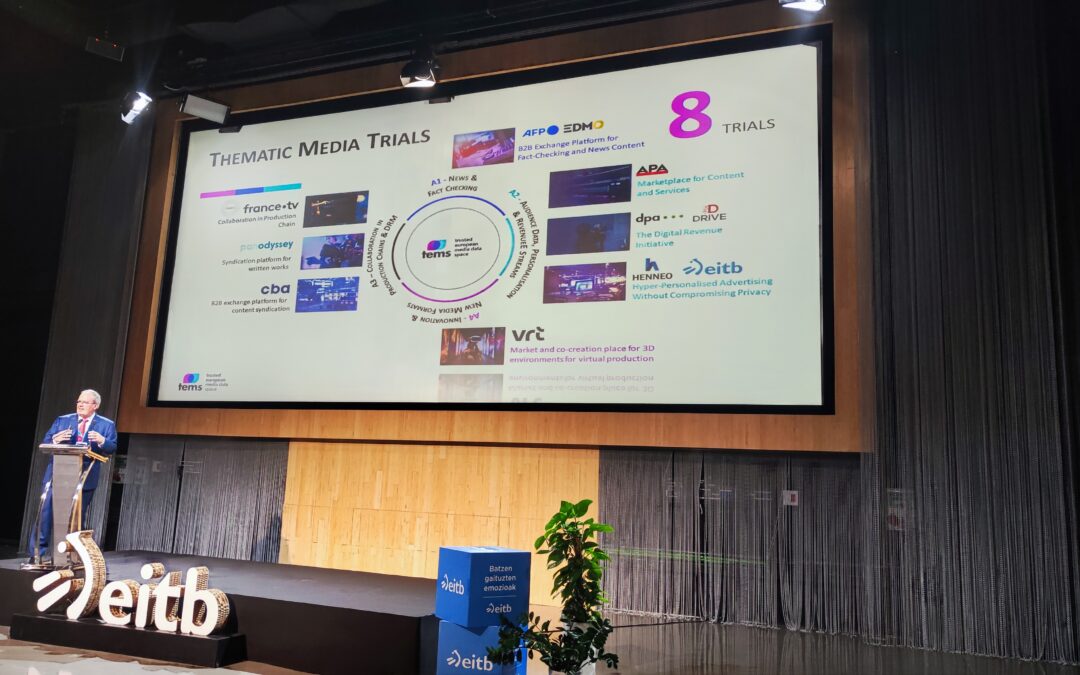Hosted by EITB in Bilbao, Spain, the New Technology Hub gathering brought together media innovators to discuss the challenges and potential solutions to the future of the industry.
The second part of the event focused on the evolving landscape of media collaboration, with a particular emphasis on data sharing and trust-building between partners. EITB and its partners highlighted the global shift in content consumption and media partnerships: from sports broadcasting technology to the development of platforms for segmented audiences and working alongside trusted organisations to the evolution of EITB’s data strategy.
Oscar Lazaro, CEO of Innovalia and the coordinator for the TEMS consortium, offered valuable insights into how the media sector can evolve beyond traditional community-building to embrace broader, more integrated ecosystems.
Lazaro opened the discussion by emphasizing the pivotal role of trust in fostering successful partnerships. “While trust is a simple concept, it becomes more challenging to establish when multiple parties—some of whom may be competitors—are involved. However, it remains the foundation for collaboration and innovation.” He highlighted how extending data governance beyond individual organizations can create opportunities for shared insights and new use cases, benefiting all partners involved. By pooling data and collaborating more openly, media organizations can overcome obstacles that would be difficult to address alone.
The presentation also touched on the rapid advancement of artificial intelligence (AI), a technology that is significantly impacting the media business. Companies are increasingly leveraging data from news outlets and other media sources to enhance AI-driven services. This underscores the need for clear frameworks to govern the ethical and practical use of data. Data spaces, advanced platforms for secure data exchange, were introduced by Lazaro as a solution. “These spaces incorporate technical, legal, and governance measures that allow media organizations to maintain control over data while fostering innovation and collaboration.”
He also outlined key initiatives within the TEMS project, which aims to address some of the industry’s most pressing challenges: improving audience engagement and personalization strategies, exploring new media formats such as 3D content, enhancing collaboration in media production, and ensuring the reliability of shared information.
With the media landscape undergoing such profound changes, gatherings like the New Technology Hub are critical for shaping the future of the industry. Through projects like TEMS, driven by collaboration and trust, the media sector can navigate these challenges and continue to innovate for the future.
